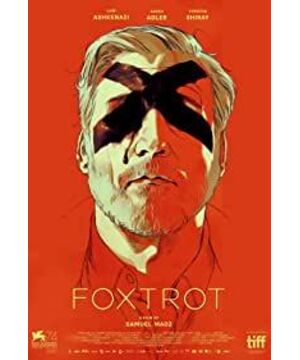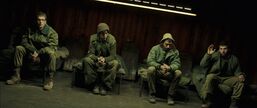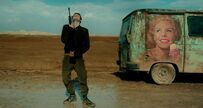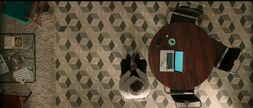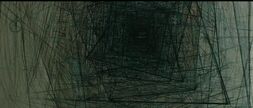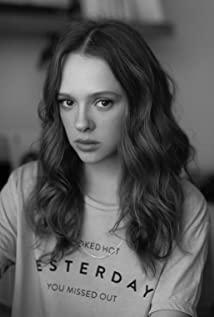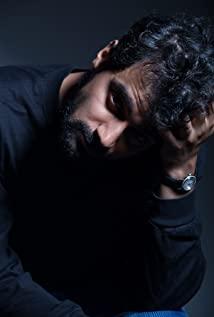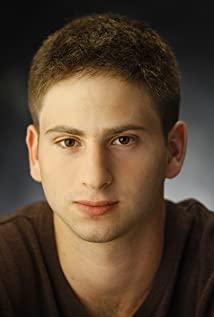Nietzsche said that God is dead. Sartre said that human existence precedes essence, people have the freedom to choose, and your choice determines your essence. The story of "Foxtrot" takes place in Israel, the place where God was born. The Jewish director, who was born with philosophical genes, put forward another view-does people really have freedom and does fate exist?
Foxtrot
Like the foxtrot, even if it can be danced in a variety of ways, it will return to its original place after going around, and the fate of the characters in the film does not seem to have changed because of their choices. The fate of the soldier's death did not change because of the resolution of the misunderstanding; the mother gave up abortion and chose to give birth to a child, but she eventually lost him; the son killed someone by mistake, but was not punished for it, but died in a car accident on the way home; the husband and wife The two chose to quit smoking, only to relapse; the tourists who were shot had no choice, but they died at the choice of others, and their existence was silently buried.
The director sets scenes and compositions many times in the film to express the fate of the characters. The straight road that appears at the beginning and the end, the perspective principle makes the end of the road disappear to a point in the distance, implying that the fate of life is like a road without forks, the destination cannot be changed, and people have no choice; the corridor in the male protagonist's house is also straight. Yes, the end of the corridor is blurred frosted glass. The director has set up a symmetrical and in-depth composition of his father standing in this corridor many times, which means to explore the philosophical question "where do people go"; the abstract paintings hanging at the entrance of the home, The center of the revolving rectangle is the only midpoint, implying fate; the moths in the glass cover in the cargo box are banging against the glass again and again in vain trying to fly to the flame, implying the fate of moths to flames. absorb. Symmetrical composition is often used in the film, and the strict symmetry confines the characters in the center of the picture, which weakens people's free agency; the director uses a full-down camera in special plots to view the characters from the perspective of God, highlighting the insignificance and helplessness of people, enhancing the It expresses people's sense of fate; several shots of birds flying in the frame diagrams use frames to express limitation, and also imply that in the Bible, "you should fly like a bird to your mountain", which means that as a person owns a mountain The same unchangeable destination, even if the appearance of life is as unpredictable as a cluttered flock of birds, people still have to return to their predestined destiny like birds flying back to the mountains.
The Camel: Anxiety of the Unbearable Lightness of Life
Existentialism believes that people can choose freely, and choices affect their fate, so people are responsible for their own behavior, and choice anxiety is the root of anxiety. But when the sense of fate erodes people's freedom, the sense of responsibility will disappear, so life will feel unbearably light. Mixed between freedom and fate, the characters suffer from another kind of anxiety, which is confusion. Camels are described in the Bible as domesticated poultry, but the latest research proves that the domestication of camels is far behind the Bible. Can this be a proof that God is dead? In the post where the soldiers worked, camels appeared many times, implying doubts about God and fate, but the place where the camels appeared was an equally straight road, there was no choice, just like the existence of fate. When the son dances the foxtrot dance, a camel appears in the depths of the picture, implying doubts about the fate of the foxtrot returning to its original place. The camel came slowly from the dark night, but disappeared in the dark night, and the death of the son was also because of a camel that appeared on the straight road.
The father is the character who bears the anxiety of choice in the film, and his choice really changes the fate. Father's exchange of bibles for pornographic magazines was a provocation to God, and this choice led to his mother's insanity; when his father was in the army, he chose to let his comrades go first and avoid the fate of being bombed. The guilt and anxiety made him intolerable The screams of the comrades-in-arms hope that the struggling comrades-in-arms will die; the father chooses to recall his son, but this choice leads to the real death of the son. Such anxiety led to their double doubts about existentialism and fatalism, so the father insisted on seeing people die and corpses to eliminate the doubts in their hearts. In the animation, he longs for the pictorial girl's breasts - the breasts represent the mother and the source of life, as well as the desire to know the origin of the world, and his choice blinds him with a black fork with guilt on his face His eyes made him believe that he saw himself in the mirror, that others could not see the fork on his body, and that the consciousness represented by fantasy was the source. He kicked the dog, because the object of pity and understanding the dog showed was the sin and pain he was trying to hide, a pain that could only be comforted by his own innocence. But his essence was still discovered, and his cover-ups were finally exposed.
This anxiety is also reflected in the scene of the sentry in the film. Dull routines lacking dialogue, soldiers measuring to determine if the cargo box is really tilting; soldiers playing virtual war video games wondering what they are fighting and fighting; Going forward on the muddy ground, but fell to the ground and stuck in the quagmire; a soldier chose to wear headphones to escape reality, a soldier became a conspiracy theory and a nihilist; the verified soldier could not identify himself through photos, and could not verify consciousness Anxiety and nervousness about existence led him to mistake the beer bottle for a grenade; the soldiers watched the cars passing by the sentry every day, but they were trapped in place, and they could only use binoculars to try to see the world outside the predicament, and they could see the world in real time. They were sweating profusely, and what they saw was just another wasteland. Their anxiety is also reflected in their sexual repression. The sexy girl painted on the van keeps her eyes on the passing beauties and smiles at the ID photo displayed on the screen.
The director uses audio-visual language to show this depression and anxiety. In most of the film's scenes, long shots, slow editing, slow and steady camera movement, and restrained actor scheduling bring the film's slow rhythm; grayish, low-saturated tones convey depressed emotions; low and soothing soundtrack rendering The atmosphere is solidified; the close-up and close-up of the characters are often used to express the psychology of the characters, and the audience can feel this emotion through the narrow space and the sad performance of the actors; in the home scene, the one-way lighting makes the characters in semi-darkness, reflecting the The tragic image of the characters; the sentry scene, the use of the reflection in the water and the setting of the rainy night bring cold depression and sadness.
Freedom and fate open a hot war
The death of his son in a car accident is undoubtedly the fuse that turned this anxiety from a cold war into a hot war. When the scene returned home again, the director reversed the narrative sequence, putting his son's real death at the end, and did not explain the previous situation, which made the audience feel confused and ambiguous. Its essence is to express freedom and The real ambiguity between fate, who is the truth director did not give a clear answer, but only adopted a moderate attitude.
In this scene, the camera shakes for the first time, the movement of the camera and the camera are faster, and the rhythm of the cut is also accelerated, suggesting the outbreak of contradictions. The hint of this eruption is the inclination of abstract painting, which means the breaking of calm and existing patterns. Before the loss of her child, the wife took the same self-mutilation method as her husband to vent, also because the pain can make people feel the existence, so as to get rid of the suppressed sense of fate.
But the final outcome of this hot war is a reconciliation. When the husband and wife finally treat each other frankly, after the close-up of the wound on the wife's hand from the husband's perspective, there is a scene where the front of the character does not move and the background rotates rapidly. Accompanied by the lyrical music, the eyes of the actors meet each other but are detached. It seems to be two planets in the universe, existing in the gravitational force. Gravity is destiny, and the existence of gravitation is because of the existence of mass. In the dialogue between husband and wife and daughter, the front of husband and wife and the front of daughter do not always appear in the same picture. Such isolation is the isolation of the relieved from the world.
In a world where God is dead, the master of fate is the individual will, and the uncontrollability of consciousness leads to the generation of a sense of fate. Nietzsche said that the world is absurd, just like the story told in "Foxtrot", sandwiched between fate and freedom, the essence is the fundamental question of philosophy - what is the source of matter and consciousness, and which is the truth of knowl- edge and agnosticism? A process of constant search for answers.
View more about Foxtrot reviews


